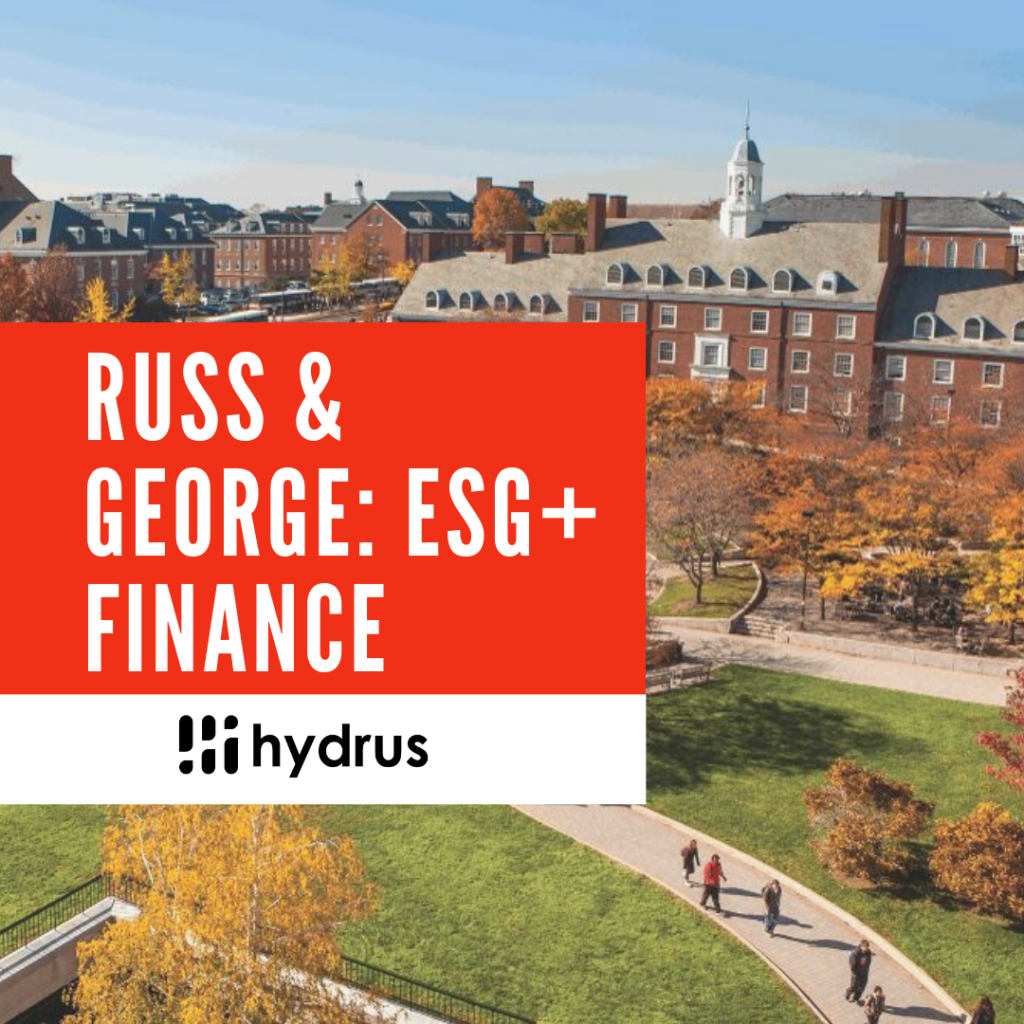Found in San Francisco, Hydrus.ai is a software technology company that builds trust with stakeholders by automating the collection and reporting of environmental, social, and governance (ESG) data. Hydrus uses machine learning to enable the exploration of alternative data to acquire both quantitative and qualitative information to then report on companies’ ESG positioning.
In this video, George Lee, The founder of Hydrus.ai, Interviews Russ Wermers who is the Chair of the Department of Finance at the University of Maryland. This interview discusses many topics such as ESG, its intersection with finance, and the relationship between academia, corporate social responsibility, governance, and the environment. The main premise of this interview is to gain insight from Russ Wermers and his perspective on the role finance plays in ESG today.
Russ Wermers has over 30 years of experience in finance. Throughout those years he has conducted research on investment performance on active managed funds along with passive managed funds. He has written a textbook and an abundance of scholarly papers all on the strategies behind managed funds. Listed below are the questions that the interview covers:
- Can you tell me about your background and what you do?
- Where do you see the financial industry going in the next 5 years?
- ESG was an unfamiliar topic to you until the creation of the experiential learning program with Hydrus. What have you found most interesting in your research so far?
- Do you believe that ESG factors may be correlated to driving equity returns?
- What do you see as driving factors in the modern-day that are making ESG more relevant?
- Out of the E, S, and G factors, which ones do you find the most interest in from a research perspective?
- Do you have fundamental doubts about ESG and the methodologies currently in existence?
- Which events in the past have driven you to describe yourself as a “natural skeptic”?
- What do you believe the future of governance is? WIll it be data-driven? or driven by other factors?
If you would like to continue the conversation and learn more, please watch the full interview here:



